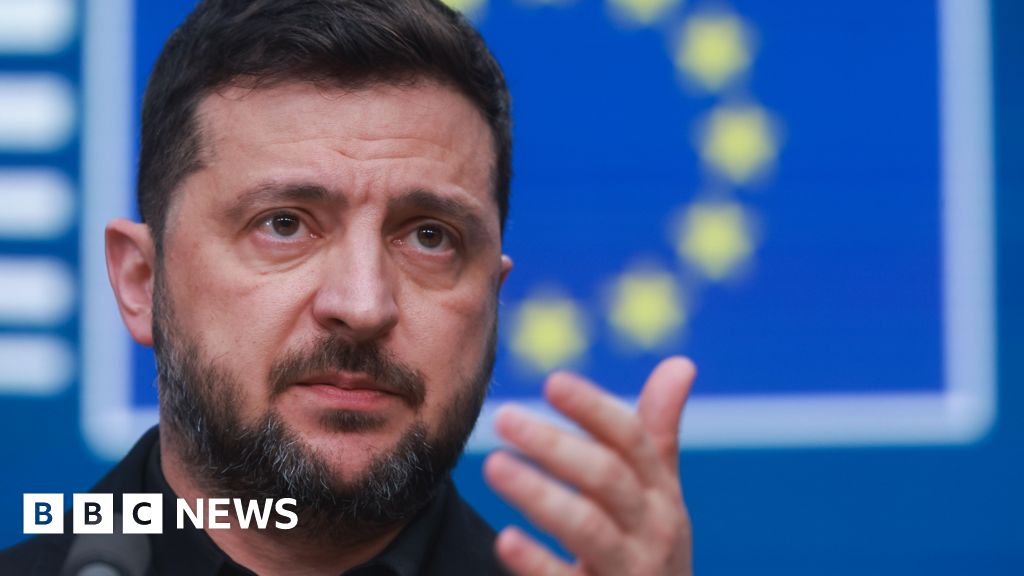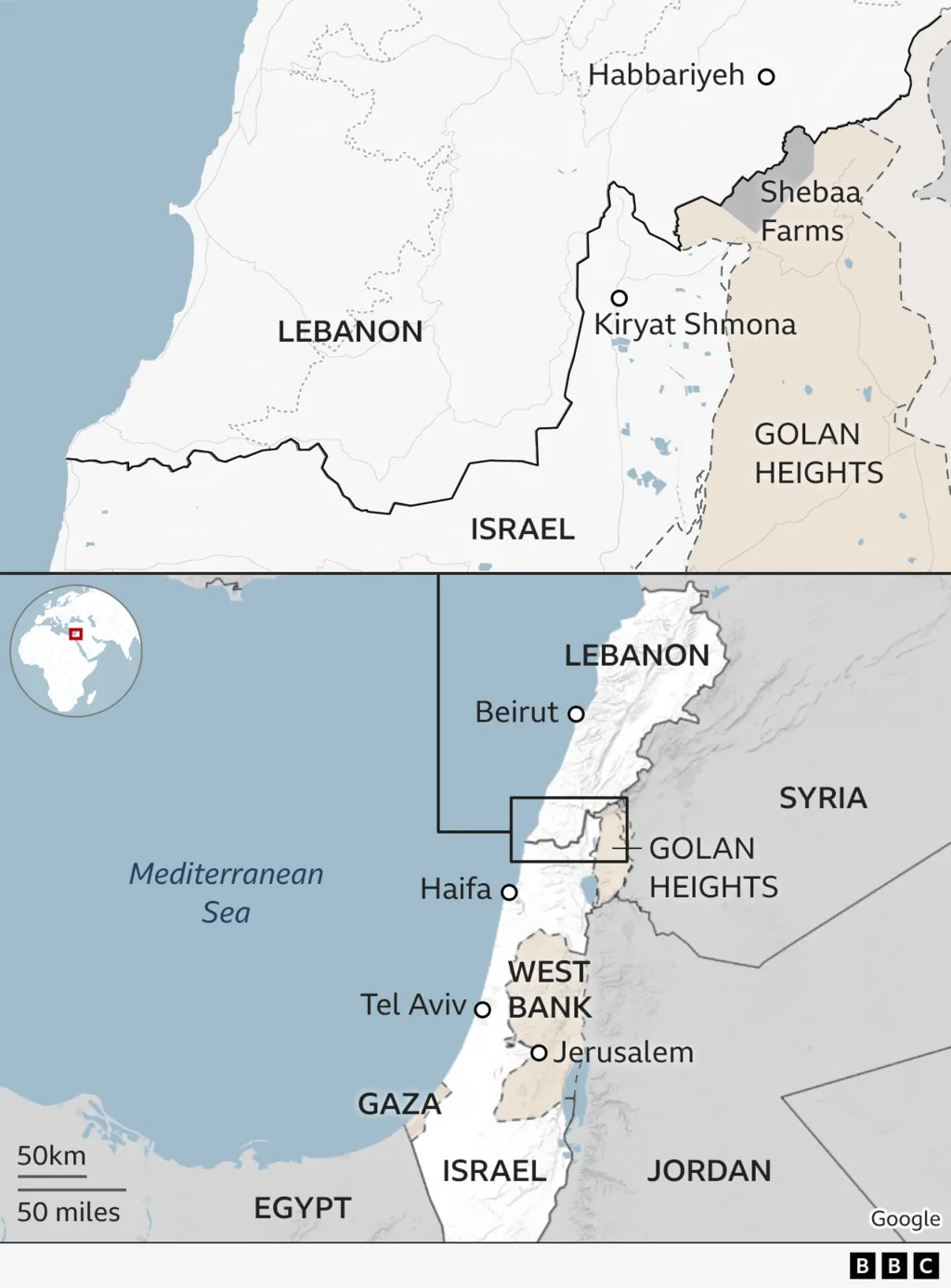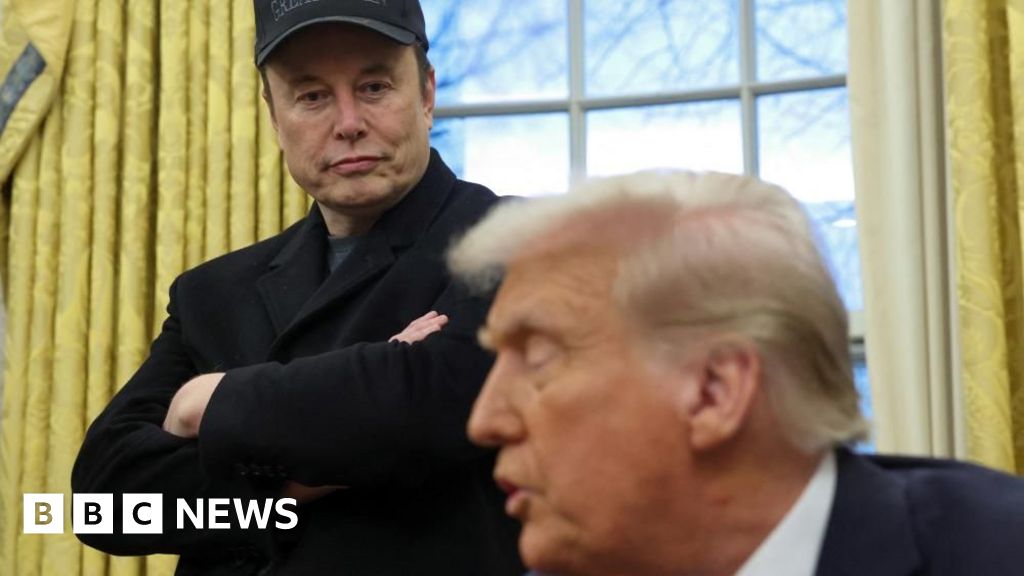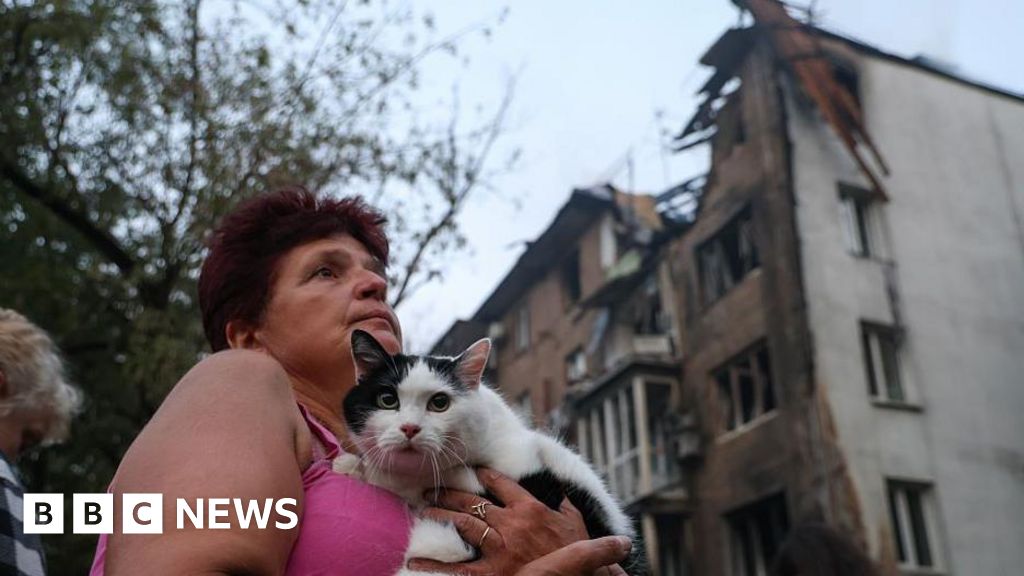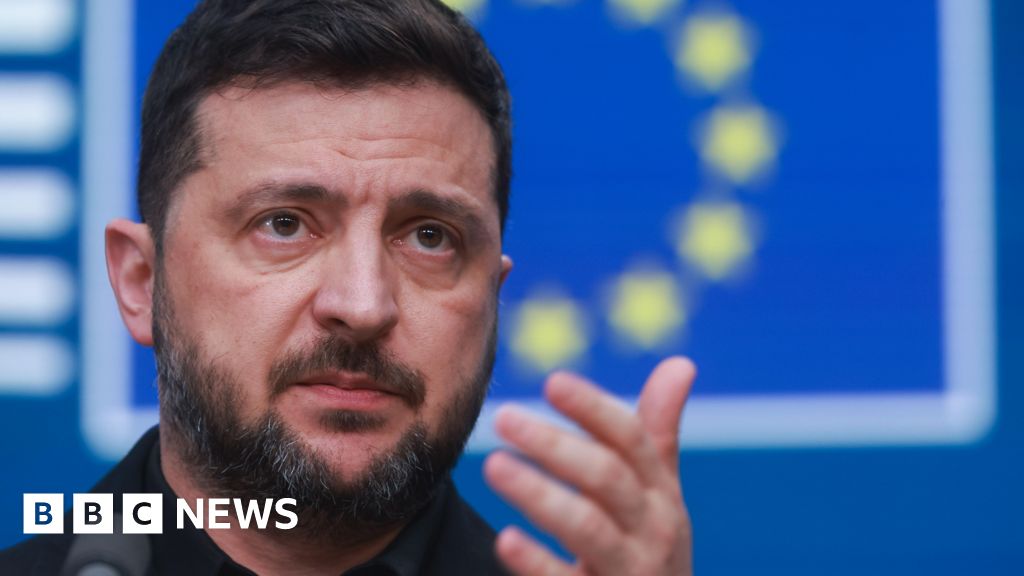
Ukraine’s president has urged the European Union to back a plan to release billions of euros in frozen Russian cash to help fund the country’s defence.
As EU leaders met in Brussels, Volodymyr Zelensky said he hoped they would make a “positive decision” about using €140bn (£122bn) in Russian assets currently held in a Belgian clearing house.
The controversial move would would be on top of sanctions the block has imposed on Russia – the latest on Thursday targeting the Kremlin’s oil revenues.
They followed US measures against Russia’s oil industry earlier – the first time President Donald Trump has sanctioned Moscow as he grows frustrated over President Vladimir Putin’s refusal to end the war.
On Wednesday evening, the US president confirmed that a planned meeting with Putin in Budapest had been shelved indefinitely.
“Every time I speak to Vladimir, I have good conversations and then they don’t go anywhere,” he said.
The US sanctions targeted Russia’s oil giants Rosneft and Lukoil. In response, Putin said the “unfriendly” US measures “will have certain consequences, but they will not significantly affect our economic well-being”.
Oil is one of Russia’s biggest exports. Ukraine wants to use long-range missiles to target Russian oil and energy plants.
Zelensky had hoped to secure Tomahawk cruise missiles from the US but last week Trump refused the request because the weapons are “highly complex” and take a year of intense training to use.
Putin warned the US of a “very strong” response if Washington allowed Ukraine to attack Russia with Tomahawks. He said strikes deep into Russia would be seen as an escalation.
On Thursday, European ministers held talks about how billions of euros worth of frozen Russian cash could be made available to Ukraine as a so-called “reparations loan”.
Zelensky, who is attending the summit in Brussels, said: “I hope that they will make a political decision, positive decision in one or another way to help Ukraine with funds.
“Russia brought war to our land, and they have to pay for this war,” he said.
There are a number of legal complexities surrounding using Russia’s money.
Belgium, in particular, has been reluctant to back using the frozen assets, as it is nervous about having to shoulder any potential consequences should Russia legally challenge Euroclear, the clearing house where the money is located.
EU foreign affairs chief Kaja Kallas admitted there were “some issues” about using the assets for a loan.
But she said: “The fundamental message is Russia is responsible for the damages in Ukraine and has to pay.”
Russia has criticised the idea. “Any confiscatory initiatives from Brussels will inevitably result in a painful response,” said Russian foreign ministry spokeswoman Maria Zakharova.
The EU’s latest measures against Russia targeted three Chinese businesses, including two oil refineries and an energy trader, that are “significant buyers of Russian crude oil”.
The measures are “meant to deprive Russia of the means to fund this war,” said Kallas as well as send a message, specifically that “Russia can’t outlast us,” she said.
China condemned the decision, which a commerce ministry spokesperson said “seriously undermined the overall framework of China–EU economic and trade co-operation”.
